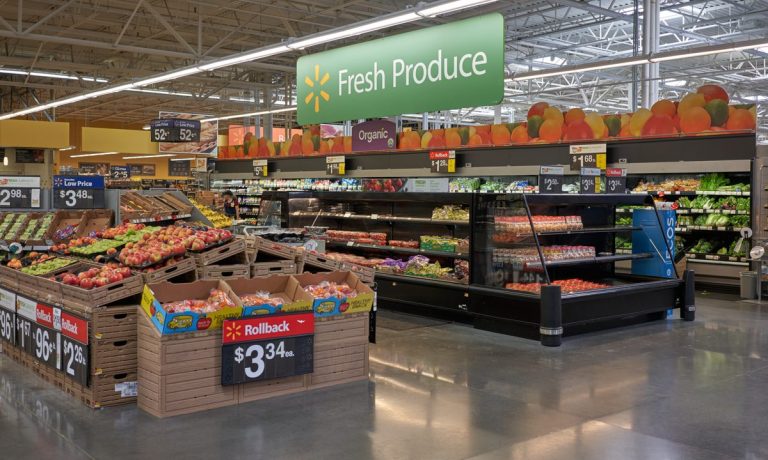Walmart Backs Vertical Farming Startup in Bid for ESG-Conscious Consumers’ Loyalty

As consumers from all walks of life become increasingly concerned about the environmental and social impacts of their foods, brands that do not offer products that make the grade as far as these shoppers are concerned risk turning away many would-be customers.
With this trend in mind, the world’s largest grocery retailer, Walmart, announced in a Tuesday (Jan. 25) press release that it has invested an undisclosed amount in South San Francisco, California-based vertical farming startup Plenty.
“At Walmart, we are focused on identifying and investing in innovative food solutions to bring our customers the freshest, highest-quality foods at the best prices,” Walmart U.S. Chief Merchandising Officer Charles Redfield said in the release. “We believe Plenty is a proven leader in a new era of agriculture, one that offers pesticide-free, peak-flavor produce to shoppers every day of the year.”
With the investment, Walmart is joining the startup’s board of directors, and the retailer will be bringing Plenty’s produce into all its California stores later in 2022.
The investment is part of Plenty’s recent $400 million Series E financing round led by One Madison Group and JS Capital, according to a separate press release, with investors increasingly taking note of consumers’ growing demand for produce of this kind.
“Plenty has truly ‘cracked the code’ on the technology and economics of indoor farming,” said One Madison Group Chairman and CEO Omar Asali in the release. “It has developed an innovative and scalable model that can deliver fresh, sustainable produce to retailers, growers and governments anywhere in the world.”
In recent months, Walmart has been turning its focus toward attracting grocery shoppers concerned with environmental, social and governance (ESG) factors. For instance, in September, the grocer launched a program entitled “Built for Better” by which consumers could check for a “Built for Better — For the Planet” icon to indicate that a product meets certain environmental standards.
Read more: Walmart ‘Built for Better’ to Draw Impact- and Health-Minded Shoppers
“With Built for Better, we’ve created a framework that can grow over time,” Walmart Senior Vice President of Sustainability Jane Ewing wrote at the time. “As the needs of our communities and customers continue to change, we’ll change right alongside them.”
Walmart is the top grocer both in the United States and abroad by a considerable margin, but initiatives such as these will be crucial if the grocer wants to stay relevant, especially with younger consumers who tend to be more concerned about these matters. Research from PYMNTS’ study “Decoding Customer Affinity: The Customer Loyalty to Merchants Survey 2022,” created in collaboration with Toshiba Global Commerce Solutions, found that 28% of grocery shoppers reported having made purchases from Walmart in the previous 30 days.
Get the report: The Customer Loyalty To Merchants Survey 2022
However, Walmart cannot count on the loyalty of these shoppers. Of the top 10 grocers, Walmart’s customers were among the least committed to the brand, with fewer than half stating they were “very” or “extremely” loyal to the retailer, compared to the 56% who said they were very or extremely loyal to runner-up Kroger and the 57% who said the same of third-place grocer Publix. If Walmart wants to build customer relationships that can compete with those of competitors, the retailer will need to continue to adapt to their evolving needs and concerns.